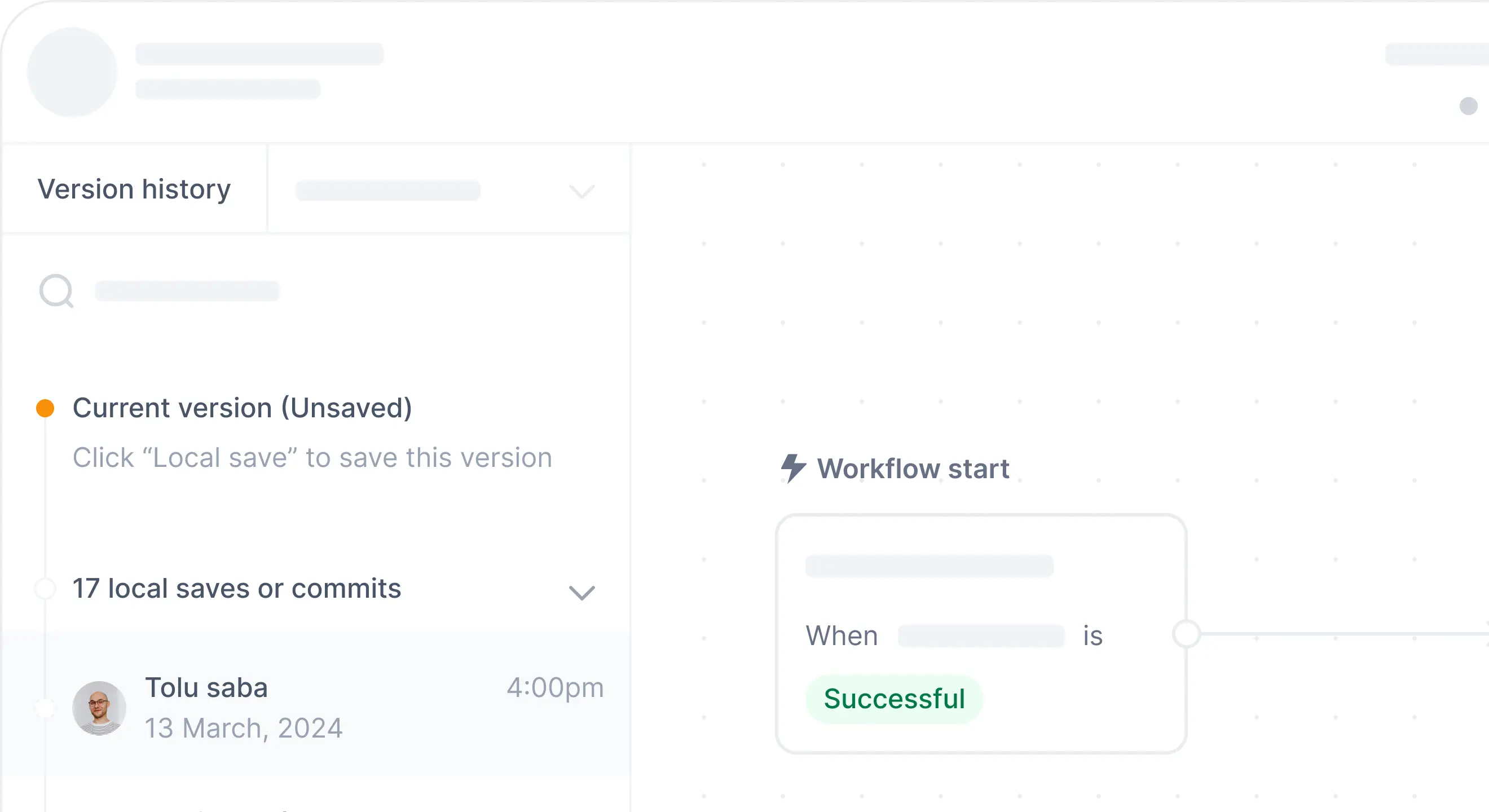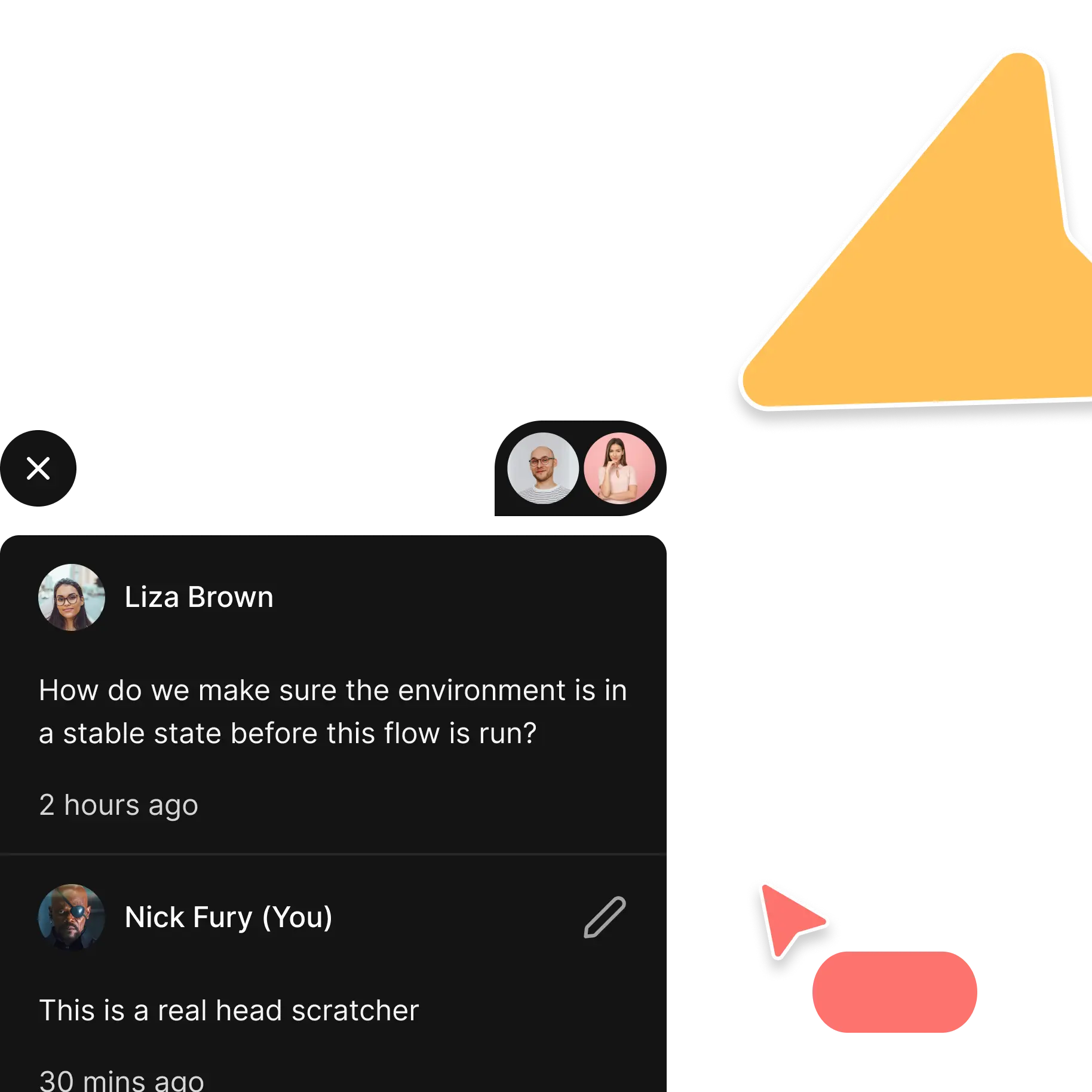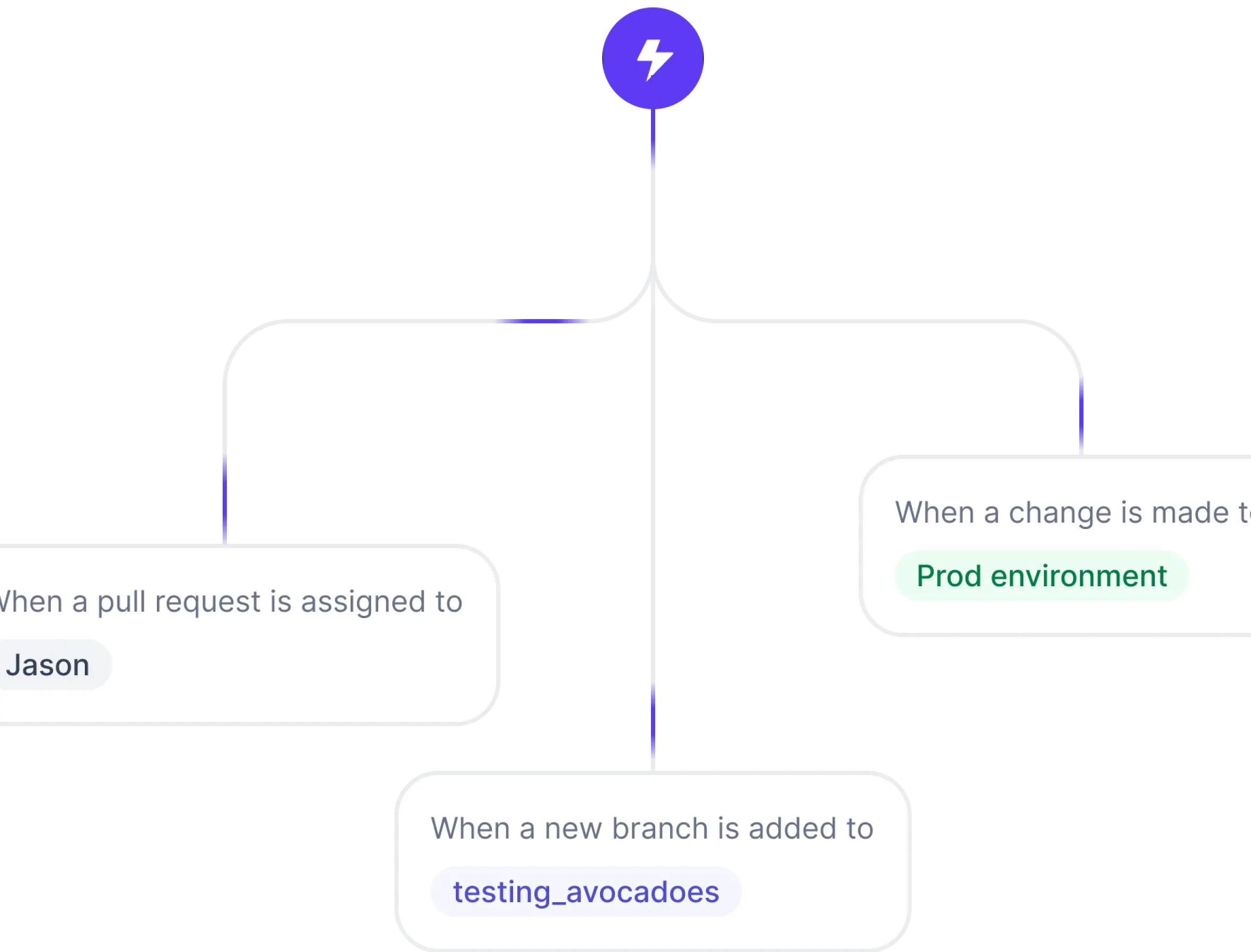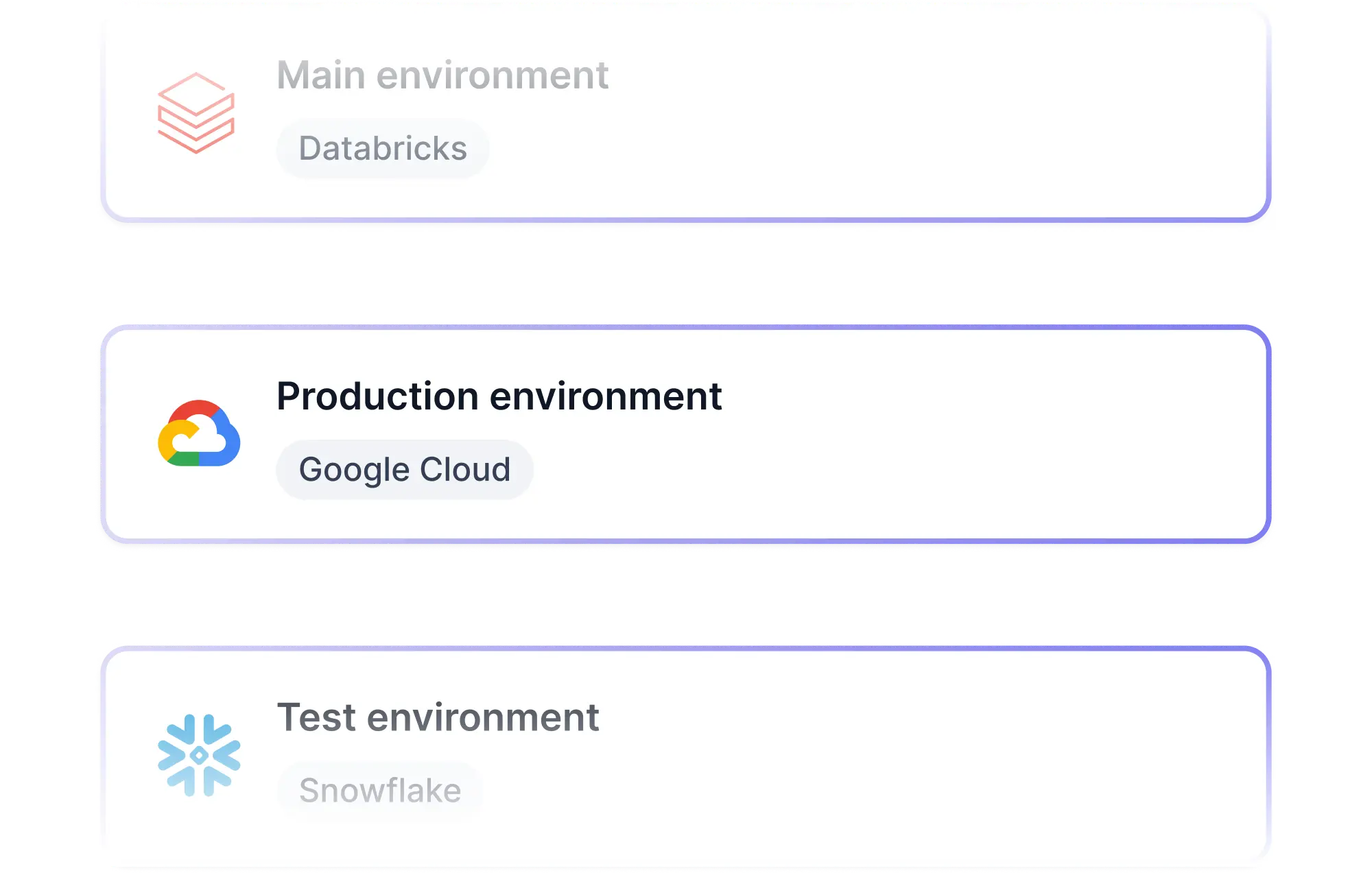Join our Beta
DataOps, Simplified.
Automate data processes, promote pipelines and seamlessly build no-code CI/CD workflows in minutes

Data Integration and Harmony
Connect your tools
Integrate your existing data stack by connecting existing tools like Databricks, Snowflake, Big Query, Amazon Redshift, GitHub.

Version control
Turn back time
Track changes and revert to previous versions of your workflows, environments and pipelines for easy rollback.

Collaborate in real time
Work together
Collaborate on workflows, raise pull requests, and add comments with real-time updates.

U
13 March, 2024, 4:00pm
<No-code workflow builder/>
No code, no problem
Our no-code workflow builder creates complex and automated CI/CD for data pipelines in a visual canvas





Event-based triggers
Automated triggers
Create, trigger and automate tasks based on internal or external schedules, data updates, or custom events.

Environment management
Environment mastery
Automated testing, environment deployment and pipeline promotion across multiple environments or data warehouses.

Use cases
Modernizing data operations
From pipelines and environments to testing and quality checks, Datangle does it all!


DataOps for modern data teams
Datangle makes sure your data team spends more time focused on the things that matter.

Increased productivity
Unlocking the full potential of your data team by freeing up their time for strategic work.

Reduce errors
Eliminate human error from your data pipelines for reliable results.

Quicker insights
Get data into production quicker with automated deployments.

Improved collaboration and synergy
Work together effectively on data pipelines with clear version control and communication tools.

Reduced costs
Save time and resources by streamlining your data operations.
Frequently asked questions
We answered the very important questions so you wouldn’t have to ask them
What is DataOps and how does it benefit data teams?
DataOps is a collaborative data management practice focused on improving the communication, integration, and automation of data flows between data managers and data consumers across an organization.
It aims to improve the quality and reduce the cycle time of data analytics by adopting techniques from the DevOps methodology.
Who can use Datangle?
Anyone within a data team that wants an easy-to-use interface for managing and creating pipeline deployments workflows instead of writing yaml scripts on GitHub Actions, GitLab Pipelines, Bitbucket Pipelines etc.
It is accessible to data engineers, data scientists, analysts, and even non-technical users with its no-code interface
How does Datangle connect to my existing data tools?
We currently support the following data warehouses; Databricks, Snowflake, Amazon Redshift etc and GitHub repository.
How can I start my workflow on Datangle?
Datangle supports event-based triggers and scheduling, this means you can trigger a series of actions based on environment, repository or timed events.
How does DataOps differ from traditional data managament?
Traditional data management focuses on siloed data storage and manual processes, while DataOps prioritizes automation, collaboration, and treating data pipelines like code for faster insights.
How is datangle beneficial to the business?
Datangle allows data teams to setup no-code continuous integration and deployment of data pipelines, leading to faster release cycles, fewer errors, improved data quality and automated environment provisioning.
